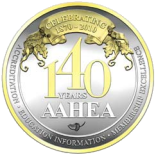Effective Tips Which You Will Use Right Away To Conduct Parent-Teacher Meeting: A Comprehensive Guide
27th August 2024

Both teachers and parents want to see children thrive in their academics. To achieve this, teachers need to conduct parent-teacher meetings in which both teacher and parent can collaborate together to come up with effective strategies to support children’s learning.
According to home.classtag.com, we can see that 60% of the parents also agree that parent-teacher meeting is necessary for their children, otherwise they are ready to change either school enrollment.
Time-to-time parent-teacher meetings can make a significant impact not just on student’s lives but it’s necessary for the school's growth as well. In this blog post, we are going to share various essential tips to conduct parent-teacher meetings successfully.
Understanding of Parent-Teacher Meeting
Parent-teacher meeting is a meeting that is conducted once or twice a year to share the overall progress of every student. These meetings are generally brief sessions that can last around 15-30 minutes per student and their parents.
However, teachers should be mindful of certain circumstances before conducting parent-teacher meetings such as single parents, divorced parents, or guardianships, and according to their preferences, you can accommodate separate meetings if necessary.
Before you move to the topic, can we ask you a quick question? Do you follow us on Social Media? If not, then you’re missing out on a lot of informative content. We regularly share upgraded educational content, tips, feedback, and more. Check us out by clicking the profiles here - Facebook / Twitter / LinkedIn / Pinterest / Instagram / YouTube
Effective Tips To Conduct a Successful Parent-Teacher Meeting
Below we have divided meetings into three parts and according to different circumstances, we have shared multiple tips with which you can make the most of parent-teacher meetings to support students to thrive in their academics.
1. Before The Parent-Teacher Meeting
Gather information
Before conducting the parent-teacher meeting you must familiarize yourself with every protocol of the school, progress report of students, report cards, grading policies, and different student assessment tools. By having a proper understanding of these guidelines in school will help you to conduct the parent-teacher meeting better.
Prepare Your Materials
Organize and prepare materials in advance to ensure a smooth conference experience. As you teach throughout the school year, keep track of assessments, assignments, and student data that you can share with parents. Consider setting aside separate conference folders containing three to five student documents supporting grades and progress, along with any available test results. Creating an outline or agenda for the conference and sharing it with parents can also help set expectations.
Send Informative Invitations
Communicate the importance of attending conferences during back-to-school nights and other parent forums. Provide multiple meeting times for parents to choose from and emphasize that the conference is an opportunity for a two-way conversation.
Remind parents to be respectful of others' time and inform them that time slots will not be extended for late arrivals. Send reminders a week before the conferences, including the location, time, and meeting agenda. If an in-person meeting is not feasible, explore alternative options like phone or video conferences and provide the necessary materials in advance.
2. During the Parent-Teacher Meeting
Create a Welcoming Environment
Every teacher must create a comforting and welcoming environment for every student’s parents by setting proper adult-sized chairs and tables. You can also designate an engaging activities area for a situation where any parents bring their children and their siblings to mitigate distractions. Additionally, offer them snacks, beverages, or even tissues for any emotional moments they have during the meeting.
Begin With Positives
The goal of parent-teacher meetings is to share the overall performances of every student and it’s quite obvious that they might be thriving in certain aspects and lacking in others. However, you must always start the meeting by stating the positive aspects of every student to create a collaborative and comfortable atmosphere for the parents.
Discuss progress and growth
You should share information about the child's ability levels or grade levels in various subjects using examples of their work or testing results. It’s quite obvious that every parent may be curious about how their child is performing compared to their peers, however, you must bring their attention to the point that this meeting focuses on an individual basis rather than their standings in the class.
You can consider providing insights related to student’s academic performance and remember that the meeting should revolve around learning-related topics.
Avoid Using Jargon & Acronyms
Always keep in mind to keep the conversation simple and easy to understand for every parent. The primary goal of parent-teacher meetings is to make them understand how their children performing and how it can be better in the future. So, avoid using education-specific jargon and acronyms to make sure that parents can fully understand the information that you’re sharing.
Ask Questions and Listen
In parent-teacher meetings, the teacher's job is not just to share insights with every student but they also focus on listening as well. You must encourage every parent to provide their input on their child’s strengths, weaknesses, likings, and learning styles in their home. You can ask questions like- Does your child enjoy school? Why or why not? By asking these kinds of questions it will help you to have a better understanding of every student’s and according to that, you can provide support better to them.
Make a Plan
Collaborate with parents to develop a plan that supports learning at home. Provide suggestions for activities and strategies that can reinforce classroom instruction. Allocate the last few minutes of the conference to discuss your specific goals for the student, outlining the strategies you plan to use, the duration of implementation, and when you will provide updates to parents.
Be Honest and Receptive
It is essential to provide parents or guardians with an accurate assessment of their child's academic progress, even if it involves delivering unfavourable news. Sugar-coating the facts undermines the purpose of the conference.
While constructive criticism is valuable, remember that you are in charge of the conference. If the discussion becomes too heated or unproductive, it may be necessary to conclude the meeting and reschedule for another time. If you anticipate potential challenges, consider inviting an administrator to attend future conferences.
3. After the Parent-Teacher Meeting
Follow-up
Express gratitude to parents for attending the conference. Take the time to send a thank-you letter or email, acknowledging their involvement and support in their child's education. Encourage students to write thank-you notes to their parents or guardians for attending and supporting their learning. Remind parents to reach out if they have any additional questions or concerns.
Regular Communication
Maintain ongoing communication with parents to keep them informed about their child's progress. Share updates on class projects, homework assignments, student accomplishments, and any issues or concerns that may arise.
Improve Your Instruction
Utilize the information gathered during the conference to make informed instructional decisions that enhance student achievement and growth in the classroom.
Parent-Teacher Meeting is The Key To Student Success
Both teachers and parents play a vital role in every child’s life to achieve success academically. The parent-teacher meeting is one of the ways to ensure that every children’s be able to thrive in their academics. Those teachers who have pursued courses like Online Educational Administration and Management Courses in China knows the importance of parent-teacher meeting and understand how to conduct these meeting more effectively.
In this blog post as well, we have shared multiple effective ways of conducting parent-teacher meetings successfully. By implementing the above-mentioned tips, teachers can conduct effective parent-teacher conferences that foster collaboration, support student learning, and strengthen the teacher-parent partnership.
We believe education should be accessible for everyone. That’s why we don’t charge for our blogs. Find the right course that will help you in your career with us, contact us at - 6621056101. You can mail us at act@asiancollegeofteachers.com.












